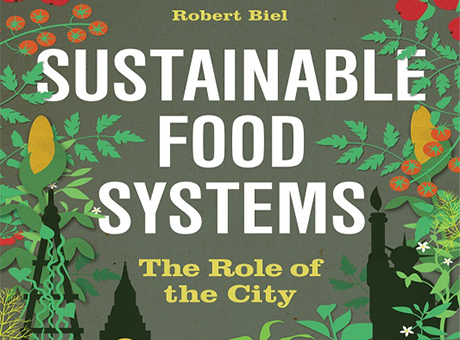Sustainable Food Systems: The Role of the City

21 June 2016
By Robert Biel
For more information visit UCL Press
About the book
Faced with a global threat to food security, it is perfectly possible that society will respond, not by a dystopian disintegration, but rather by reasserting co-operative traditions. This book, by a leading expert in urban agriculture, offers a genuine solution to today’s global food crisis. By contributing more to feeding themselves, cities can allow breathing space for the rural sector to convert to more organic sustainable approaches.
Biel’s approach connects with current debates about agroecology and food sovereignty, asks key questions, and proposes lines of future research. He suggests that today’s food insecurity – manifested in a regime of wildly fluctuating prices – reflects not just temporary stresses in the existing mode of production, but more profoundly the troubled process of generating a new one. He argues that the solution cannot be implemented at a merely technical or political level: the force of change can only be driven by the kind of social movements which are now daring to challenge the existing unsustainable order.
Drawing on both his academic research and teaching, and 15 years’ experience as a practicing urban farmer, Biel brings a unique interdisciplinary approach to this key global issue, creating a dialogue between the physical and social sciences
About the author
Robert Biel teaches Political Ecology at the Bartlett Development Planning Unit, UCL, and also runs a Master’s module on Food and the City. His books include The Entropy of Capitalism (Brill/Haymarket Press, 2013). He is an allotment holder, with 15 years’ experience in low-input, intensive food-growing, and is involved in several research projects exploring a specifically urban agroecology
 Close
Close

